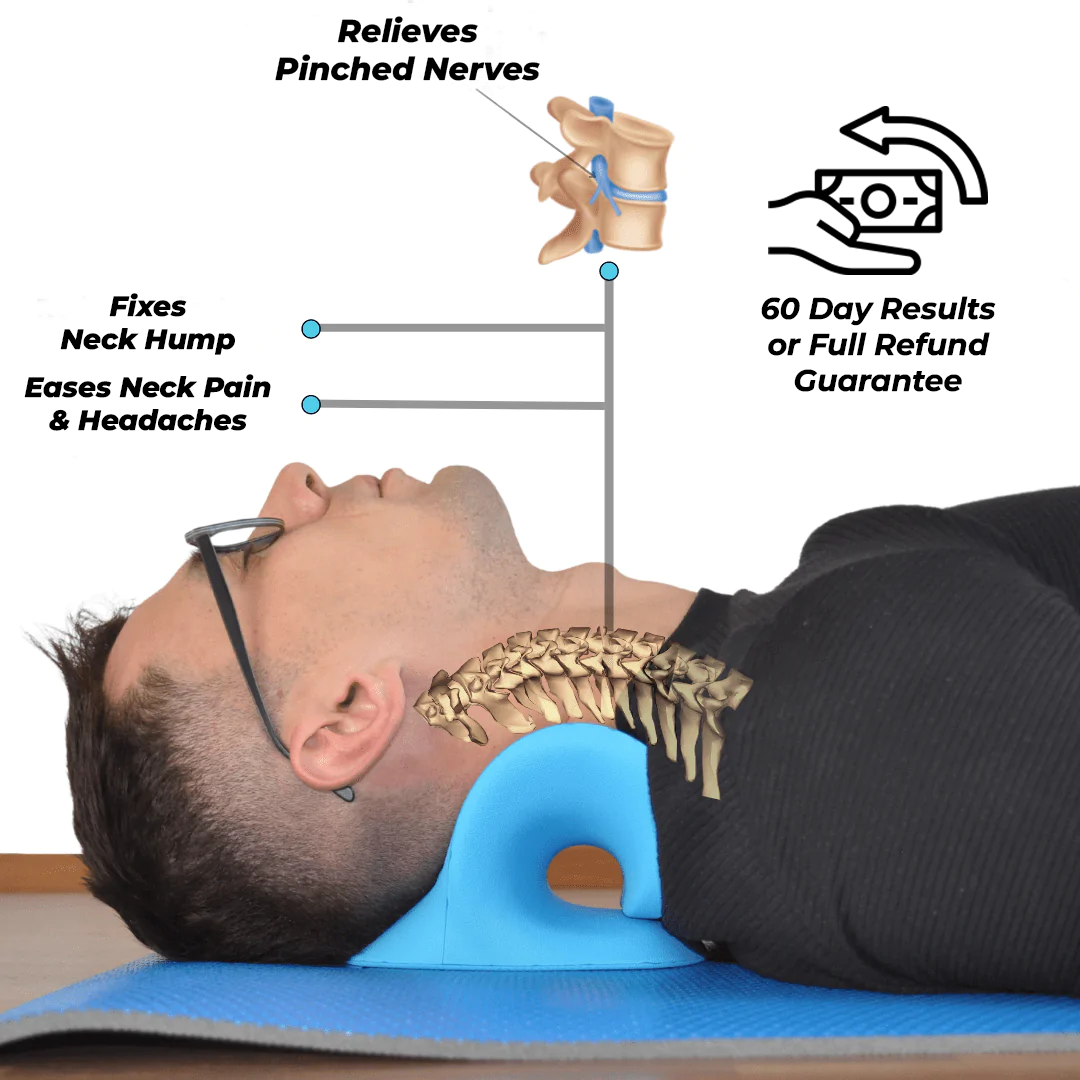Why the Neck Cloud is a Must-Have for Alleviating Neck Tension
Why the Neck Cloud is a Must-Have for Alleviating Neck Tension
Blog Article
The Effect of Tension on Neck Pain: Methods for Decreasing Tension and Pain
In today's busy world, it's obvious that tension has actually ended up being a common variable in the start and worsening of neck pain. The elaborate relationship between stress and anxiety and muscular tissue stress typically leaves individuals looking for relief from the pain that follows. By checking out targeted approaches targeted at lowering stress and advertising relaxation, one can begin to resolve the source of neck pain and job towards a more balanced state of health. Join us on a trip to untangle the influence of stress and anxiety on neck discomfort and find efficient means to minimize discomfort and improve overall quality of life.
Recognizing Stress-Related Neck Pain
Stress-related neck discomfort can materialize as tension, rigidity, or discomfort in the neck and shoulder area. The connection in between stress and neck discomfort lies in the body's physiological response to tension, which can result in muscle mass tension and rigidity in the neck muscular tissues.

Identifying Common Stress Locations
One usual tension location is the neck, where stress frequently shows up physically. Tension headaches, rigid neck muscles, and restricted variety of movement are typical signs and symptoms of stress-related neck stress. Being mindful of these usual tension locations can help individuals identify the physical signs of stress and take steps to resolve them before they escalate into chronic pain or pain.
Applying Relaxation Techniques
Leisure methods are beneficial devices for minimizing neck pain caused by stress. Additionally, activities like yoga and tai chi incorporate both physical activity and leisure, making them reliable methods for reducing anxiety and neck pain. By incorporating these leisure strategies into your daily regimen, you can assist handle stress levels, minimize tension in the neck, and reduce pain associated with stress-induced neck discomfort.
Integrating Self-Care Practices
Incorporating self-care techniques is essential for maintaining general well-being and handling stress-related neck pain successfully. Engaging in routine physical task, such as gentle extending exercises or yoga exercise, can assist alleviate tension in the neck and shoulders. Practicing great pose throughout the day and taking frequent breaks from long term sitting or screen time can likewise protect against pressure on the neck muscle mass.
In addition, prioritizing appropriate rest and establishing a constant rest routine can contribute substantially to reducing anxiety degrees and promoting relaxation. Developing a soothing going to bed routine, such as reviewing a publication or taking a warm bath, can assist prepare the body and mind for relaxed rest. Furthermore, maintaining a balanced diet plan abundant in nutrients and remaining hydrated can support total health and wellness and decrease swelling that might exacerbate neck pain.
Integrating mindfulness practices, such as deep breathing exercises or meditation, can help take care of stress and anxiety and promote relaxation. Taking time for oneself, participating in pastimes, and setting boundaries to shield individual time are additionally vital elements of self-care that can add to decreasing tension and minimizing neck pain.
Looking For Professional Assistance
Exactly how can individuals efficiently pop over to this web-site deal with consistent neck pain that is affecting their day-to-day life blog here and health? Looking for professional help can be a crucial step in managing and minimizing neck pain.
Chiropractics physician concentrate on spine adjustment strategies to improve placement and reduce stress in the neck area. Physical specialists provide targeted stretches and workouts to strengthen muscles, improve adaptability, and improve total neck function. Orthopedic experts can provide sophisticated medical interventions such as injections or surgical alternatives for severe situations of neck discomfort.
Final Thought

Stress-related neck discomfort can materialize as stress, stiffness, or pain in the neck and shoulder location. The connection between stress and anxiety and neck discomfort lies in the body's physical action to anxiety, which can result in muscle stress and tightness in the neck muscle mass. Tension headaches, stiff neck muscular tissues, and limited range of movement are typical symptoms of stress-related neck stress. By including these leisure techniques into your everyday routine, you can assist manage anxiety degrees, reduce tension in the neck, and minimize pain associated with stress-induced neck pain.

Report this page